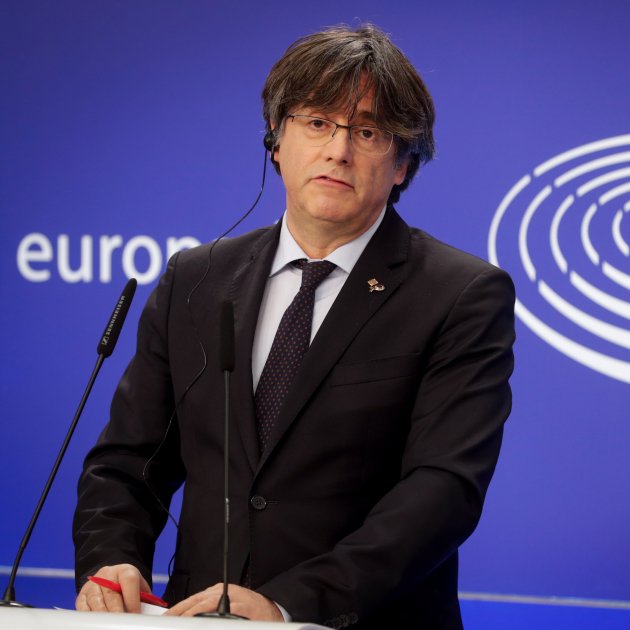The European Court of Justice (ECJ) has received all the arguments from countries that want to participate in the case of exiled Catalan president Carles Puigdemont and his political colleagues, in relation to the European Arrest Warrants (EAWs) which Spain issued for their extradition. Among the submissions received, there are positions that were already anticipated, such as that of Belgium, which has publicly made it clear that it is against Spain's arguments. But the Spanish state is not alone: among the countries wanting to have their say on the matter are Poland and Romania, which have sided with the arguments of Spanish Supreme Court judge Pablo Llarena. According to the newspaper La Razón, several sources have confirmed the position taken by the two Central European countries and have clarified that the next step in the judicial process is to set a date for the hearing.
The participation of other countries in the judicial process directly challenging Puigdemont was to be expected, as the Court of Justice's interpretation of the EAWs based on the case of the exiled Catalan politicians will affect the entire legal system of the Union. Specifically, the Luxembourg court has to rule on the preliminary questions presented by Pablo Llarena on the application of the arrest warrants, which will give either another setback or a nudge forward for the Supreme Court's long campaign to have the pro-independence politicians delivered to the Spanish authorities.
The European Commission has also submitted a report on the case, but it remains secret. According to La Razón, the European Commission's arguments are in line with judge Llarena's, although the right-wing Spanish paper also acknowledges that there are other sources who say that the report is "very ambiguous", in line with the usual EU approach.
Domino effect
The decision of the ECJ could set a precedent that would not only affect other cases across the continent, but other procedures that Puigdemont himself has open. For example, the court's decision may affect pending cases such as the arrest of the Catalan MEP last October in Sardinia.
On that occasion, Puigdemont came out on top and Llarena received an international drubbing. However, the omelette could be flipped in the event that the ECJ favours the argument of the Spanish judiciary. That is why the support of the two other European countries gives Spain an opportunity to achieve a judicial victory in the prosecution of Carles Puigdemont, which Spanish justice has not had so far.
"It's one of theirs"
Carles Puigdemont reacted in a tweet a few hours after it had become known that Poland and Romania took a line supporting Spanish judge Llarena and questioning the scope of the Belgian courts to examine violations of fundamental rights when judging a European arrest warrant. "It's understandable that that [those countries] feel compelled to side with the Spanish state: it is one of theirs." "Poland and Romania are states that are defying Europe," he clarified.
The Catalan MEP has repeatedly expressed his confidence in European justice, both in his case and in that of other defendants. Just last Tuesday he celebrated the decision of the Ghent court to deny the extradition of the rapper Valtònyc to Spain because of threats contained in his song lyrics. Puigdemont affirmed that justice always prevails.
"Today, more than any other day, liberty has the rhythm and lyrics of rap," tweeted Puigdemont minutes after hearing the ruling given by the Belgian court. "When justice prevails, freedom is strengthened," the exiled Catalan president proclaimed.
